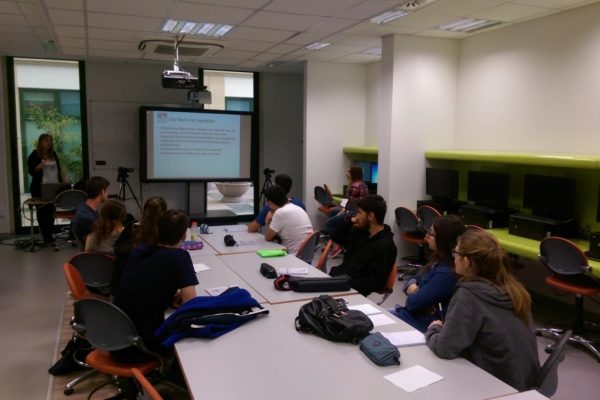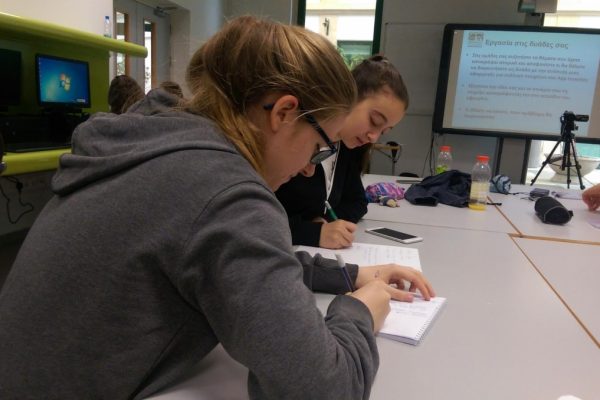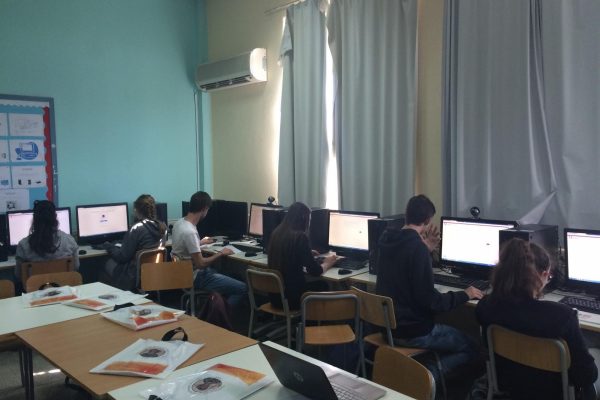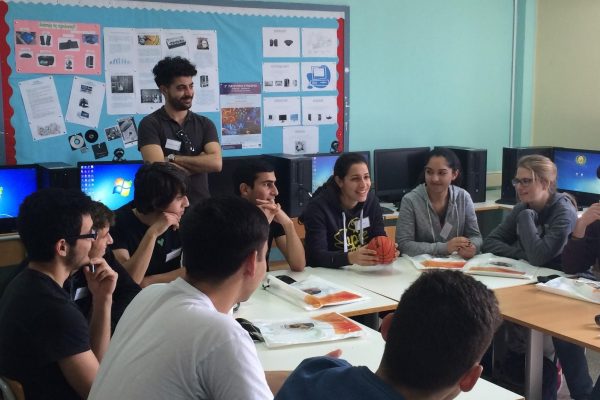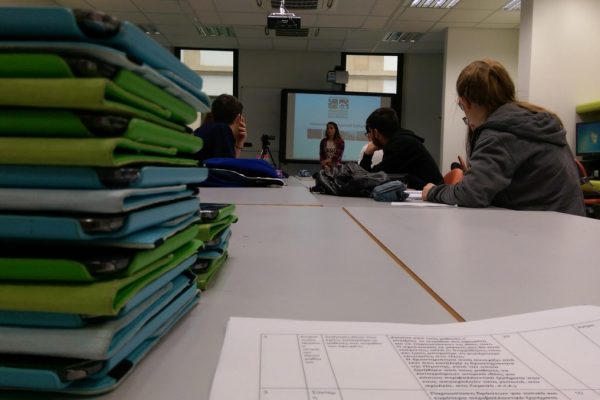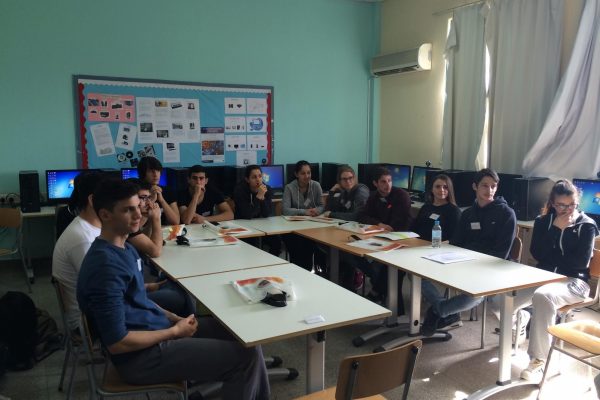The “App inventors” experience: Empowering students to change their community through blocks-based visual programming
During the Spring semester of 2016, the MCL Research Group enacted the “App Inventors” program with a total of 18th graders from Laniteio A’ Lyceum.
The program aimed to enhance students’ awareness of contemporary socio-scientific issues and help them develop computational thinking skills. As part of the program, students were divided in pairs; each pair employed the App Inventor web-based app.
The App Inventor web-based application was developed by Google’s Mark Friedman and MIT Professor Hal Abelson. The App Inventor transforms programming from complex language of text-based coding into visual, drag-and-drop building blocks. Tools such as MIT’s App Inventor (Abelson, 2009), a visual programming language with “low threshold, high ceiling” potential, seek to demystify computers and empower, by allowing users to easily design and run their own mobile apps.
The program aimed to help students learn how to program and develop mobile applications to investigate socio-scientific issues. In particular, during the program, the students participated in a sequence of experiential activities, aiming to develop their knowledge and skills on the follow topics: (a) the use of new technologies to produce digital stories or interactive digital games through programming, (b) the development of creative thinking, (c) raise awareness on contemporary socio-scientific issues, and (d) take active citizenship actions on these issue.
Overall, these activities enabled the students to develop simple apps and check their functionality on their mobile phones or on tablets supplied by our research group. Once familiarized with the app creation software (AppInventor), students worked in groups to develop their own apps focusing on a variety of socio-scientific issues, such as waste management or food conservatives.
The program takes place simultaneously in schools in Germany and USA, in cooperation with the Saarland University (Germany) and the Penn Graduate School of Education (USA).


